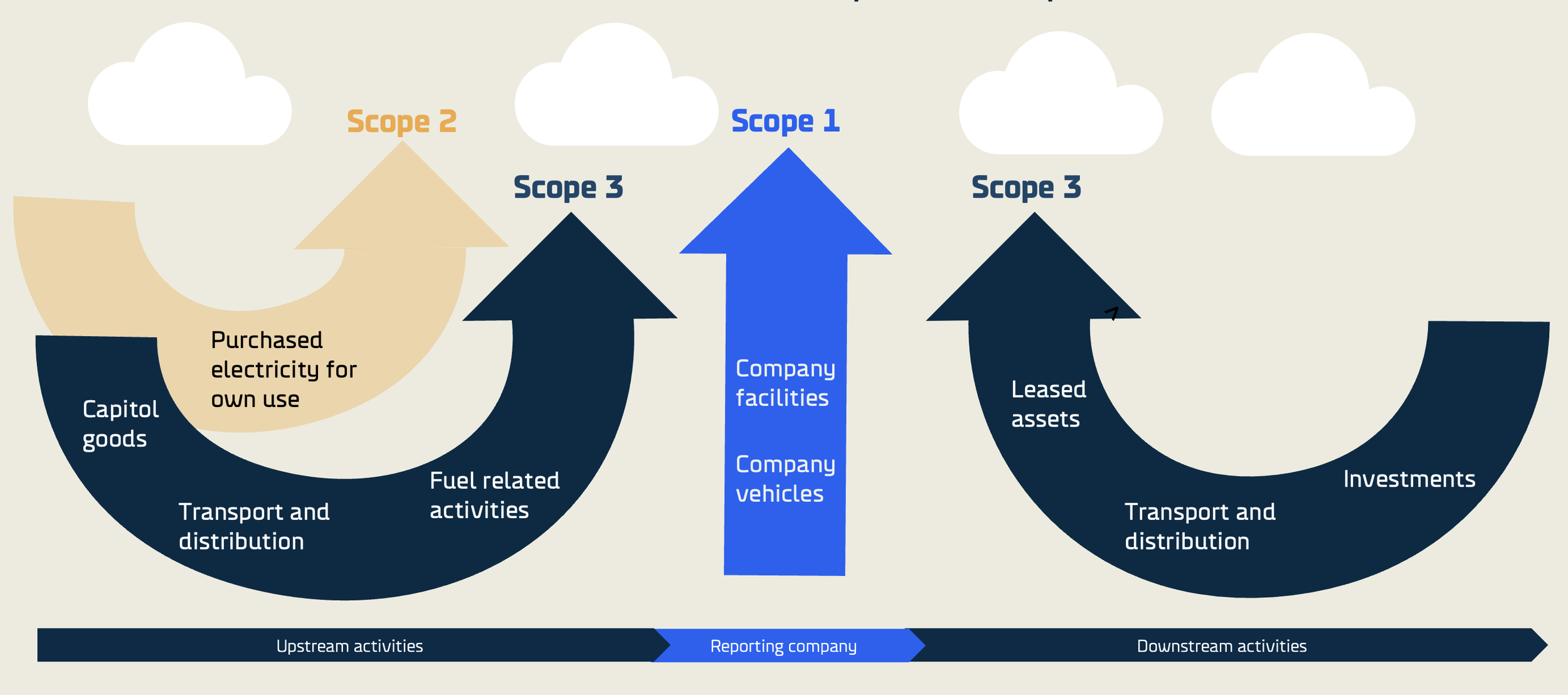Getting to net zero: Prototyping decarbonised solutions
CLIENT – DFDS
Low-emission solutions for Northern Europe's shipping giant
DFDS, Northern Europe's largest integrated shipping and logistics company, is taking a groundbreaking step on their sustainability journey.
Together, we have crafted a transformative new decarbonised offering, an initiative that not only reduces DFDS's carbon footprint but also empowers their customers to in turn reduce their Scope 3 emissions effectively.
According to Greenhouse Gas Protocol, “Scope 3 emissions are all indirect emissions that occur in the value chain of the reporting company”. The majority of a reporting company’s emissions and cost reduction opportunities are outside of their own operations, and fall under Scope 3 emissions.
Exploring a new generation of fuels and fleets
DFDS's primary goal for this project was to reduce their carbon footprint in the near-term and to empower their customers to do the same.
This aim stemmed from a larger objective of not only complying with environmental regulations but a genuine commitment to decarbonisation within the shipping and logistics industry, as echoed by their customers during an extensive engagement process Another Tomorrow carried out.
As the shipping industry is still exploring a new generation of fuels and fleets, DFDS was keen to explore an interim solution that could leverage their existing assets.
Navigating emerging mechanisms for reduced emissions
Navigating the Policy Landscape with Insetting
“To ensure integrity and prevent double counting, we conducted an extensive review of the international and EU policy landscape,” says Brianne Lee, the project’s lead Business Designer from Another Tomorrow.
The emerging "insetting" mechanism surfaced as the linchpin for passing on real emission reduction benefits to customers, particularly from alternative fuels available today like biofuel and renewable electricity.
Crafting a User-Friendly Prototype
Leveraging customer insights and policy expertise, DFDS and Another Tomorrow designed a prototype certificate. This certificate concept simplified the integration of emissions savings into carbon accounting, aligning seamlessly with customer needs. Extensive customer testing facilitated valuable refinements. Insights from customers not only fine-tuned the prototype but also uncovered additional layers of value for customers.
Leveraging the Power of Prototyping
The emergence of Decarbonised Solutions was made possible through DFDS's commitment to sustainability together with a dynamic, prototype-led approach. By engaging with customer needs, continuously iterating, and meticulously navigating the complex policy landscape, DFDS, in partnership with Another Tomorrow, has forged a transformative path to emissions reduction.
Collaboration across supply chains can optimise and accelerate sustainability performance and uncover new business value. Therefore, Another Tomorrow launched the Net-Zero Co-Lab together with DFDS and some of its most valued customers, to enable imperative dialogue and collaboration — critical to the reduction of Scope 3 emissions.
Solutions with both impact and integrity
To meet short-term decarbonisation goals, DFDS is adopting drop-in fuels with the potential to reduce emissions by up to 85% in vessels, and rolling out electric truck infrastructure with the potential to reduce emissions by up to 100%. The new Decarbonised Solutions enable customers to share in these reduction wins when shipping with DFDS.
Emissions Reduction Certificates: Your Green Seal
DFDS's emission reduction process undergoes rigorous external review, ensuring the accuracy and integrity of CO2e Reduction Certificates. Each certificate is tailored to customers’ shipments within DFDS's logistics network, affirming their commitment to reducing carbon emissions.
By investing in DFDS’ Decarbonised Solutions, you're not just cutting emissions—you're catalysing transformative change. The revenue generated from DFDS’ Decarbonised Solutions is reinvested in innovative low and zero-emission technologies. These advancements are poised to expedite the transition to a net-zero future.



